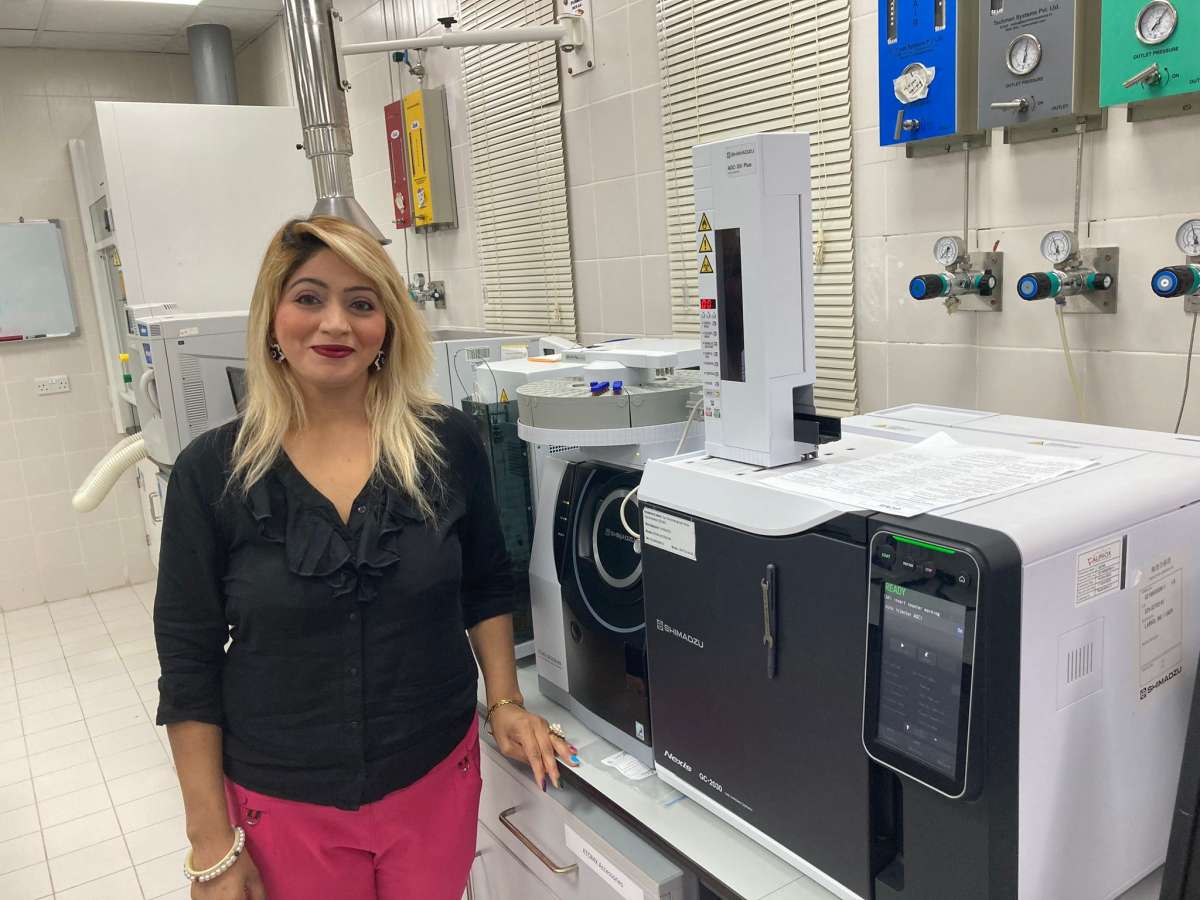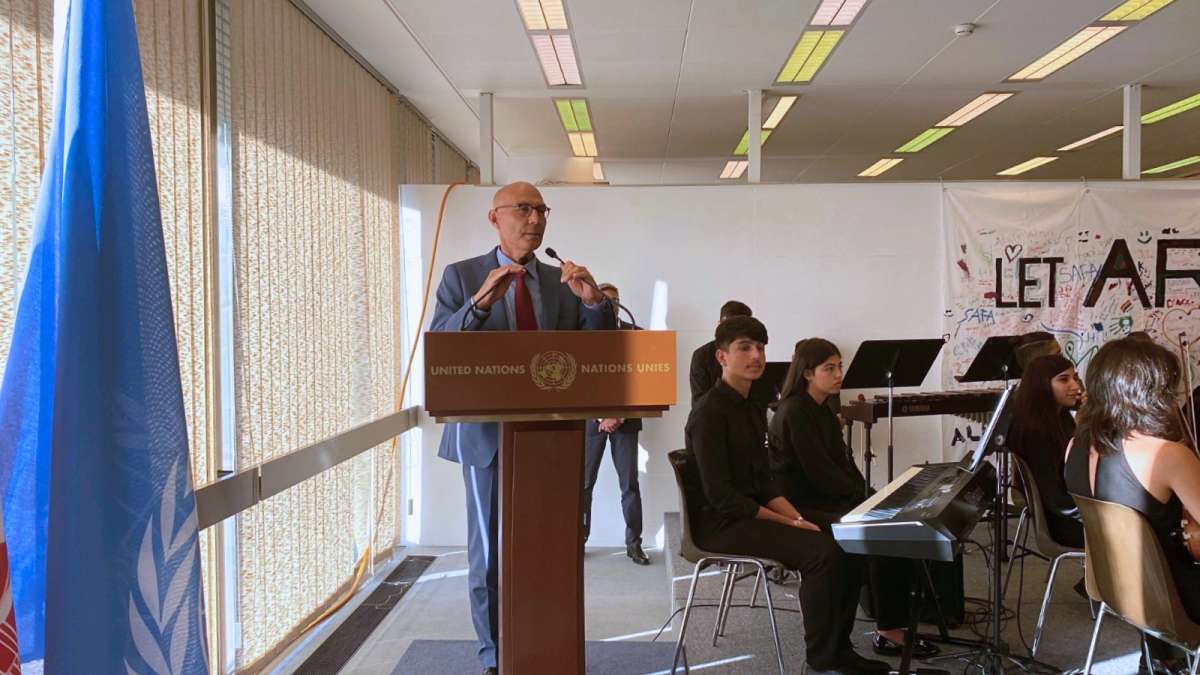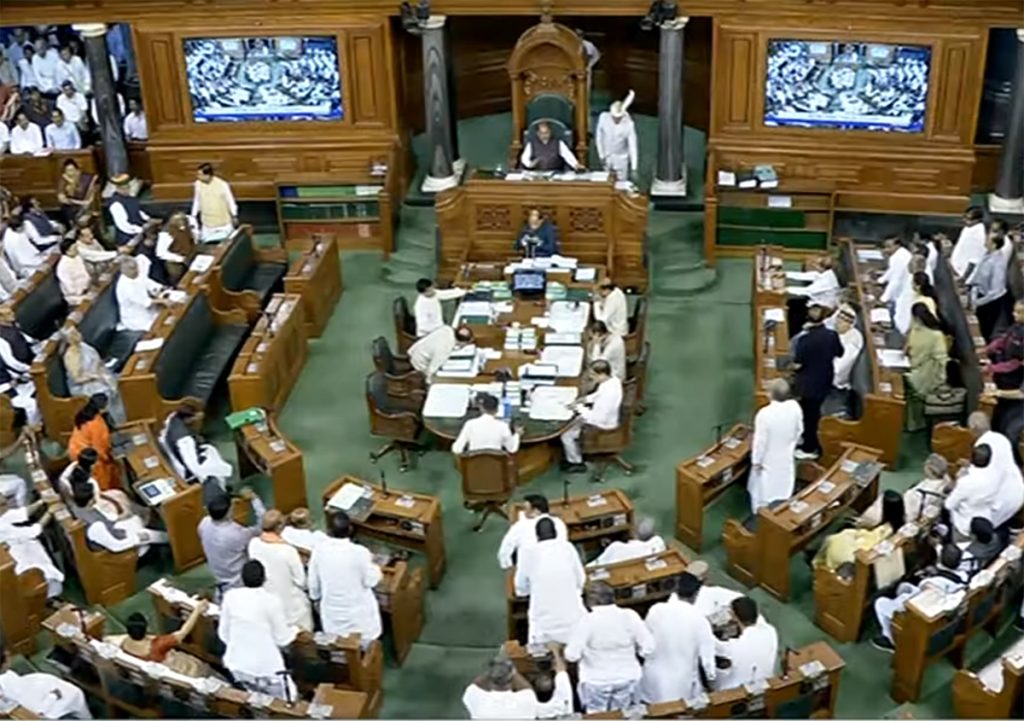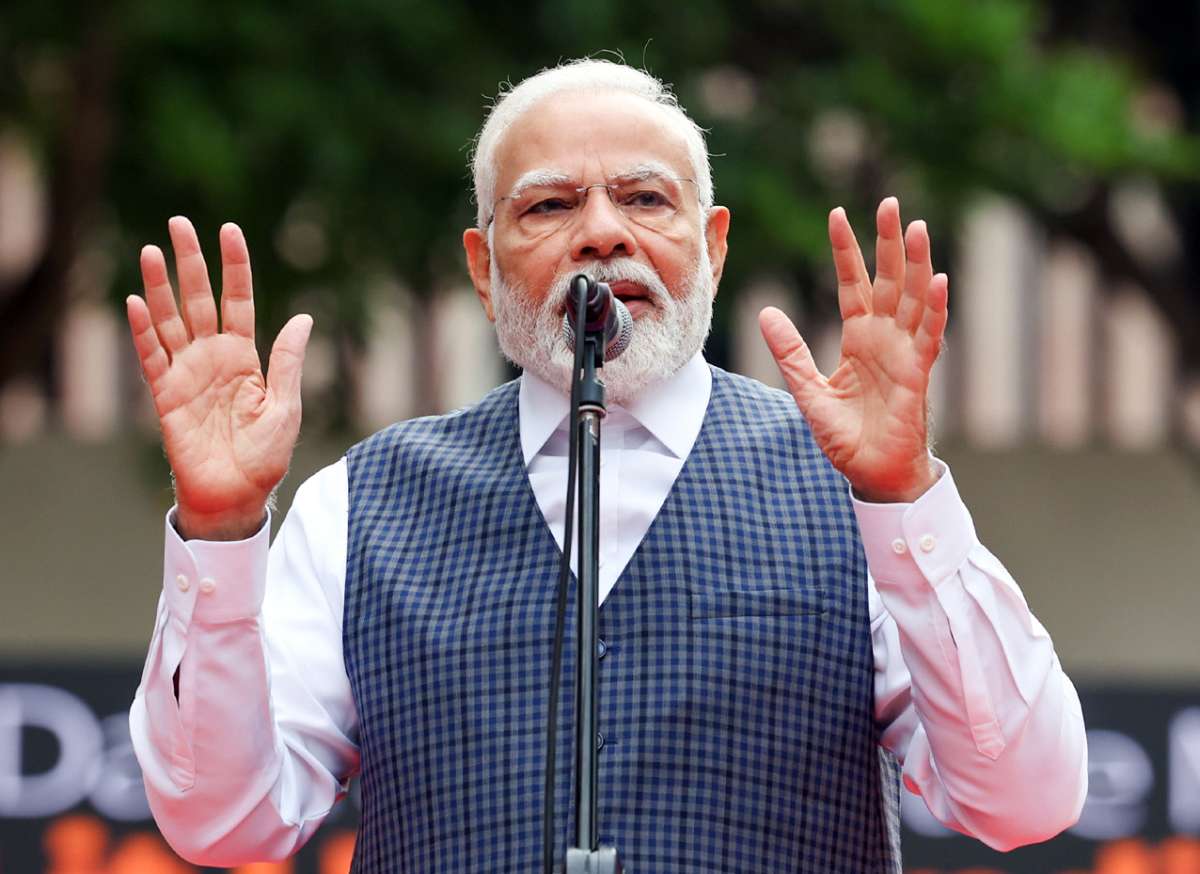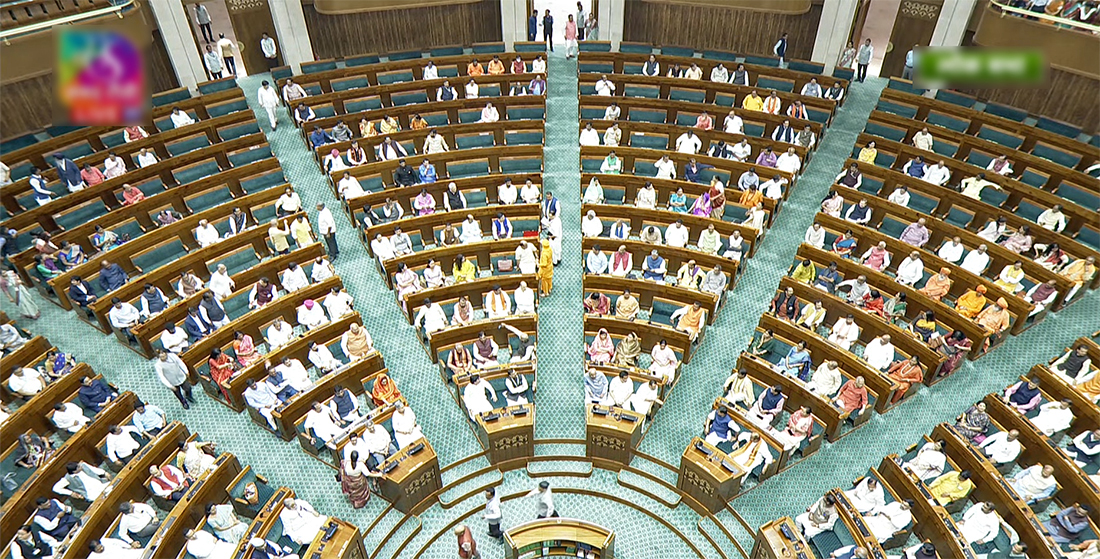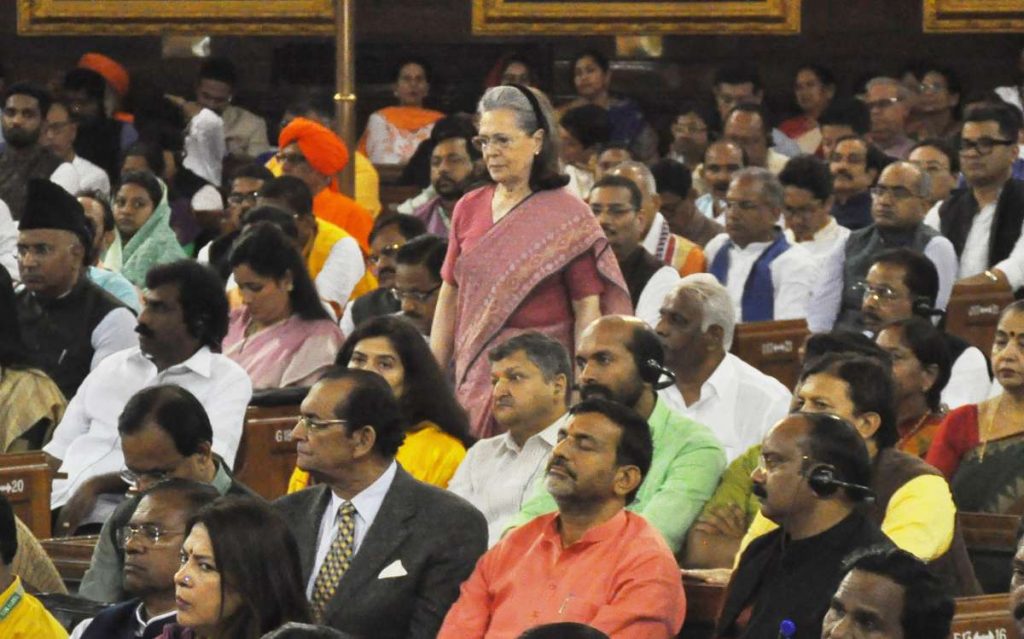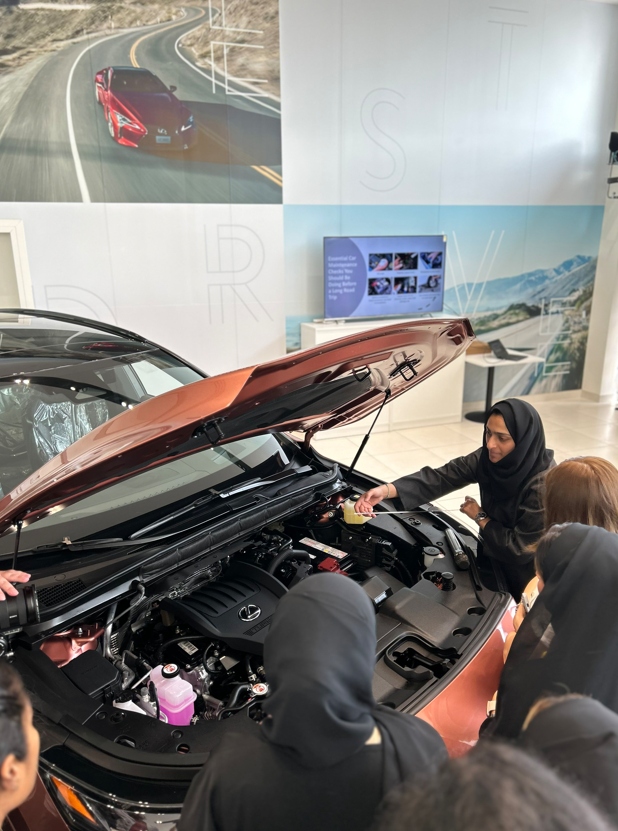Dr. Vibha Bhardwaj is working as the Director EnvironmentLaboratories in Ras AlKhaimah Municipality in the UAE. She has 19+ years of working experience.In an interview with Asian Lite’sAbhish K. Bose, Dr Vibha discusses her journey as the Director of Environment at Ras Al Khaimah Municipality and her other professional achievements. Excerpts from the interview:
Abhish K. Bose: Could you explain anything substantial that transpired in the COP28 meeting vis a vis the environmental threats in the Middle East countries are passing through?
Vibha Bharadwaj: COP28 UAE is a milestone opportunity for the world to come together, course correct, and drive progress. The aim of COP28 is to bring everyone to be more ambitious in the fight against climate change to meet the goals and ambition of the Paris Agreement. COP28 will emphasize a ‘leave no one behind’ approach to climate action. The world needs a COP of action and a COP for all.COP28 UAE will take place from 30 November to 12 December 2023 at Expo City, Dubai in the United Arab Emirates. By hosting COP28, the UAE is focusing on practical and positive solutions that drive progress for the climate and the economy, as well as provide relief and support to vulnerable communities. The UAE intends to make COP28 highly inclusive, reflecting the views of all geographies, sectors, and constituencies. The COP28 Presidency has set out a plan of action, focused on matching the highest ambition for negotiated outcomes, with a robust action agenda to implement those ambitions in the real world. The Presidency has called on governments and key climate stakeholders to take action in four areas:
• Fast-tracking the energy transition and slashing emissions before 2030
• Transforming climate finance, by delivering on old promises and setting the framework for a new deal on finance
• Putting nature, people, lives and livelihoods at the heart of climate action
• Mobilizing for the most inclusive COP ever.
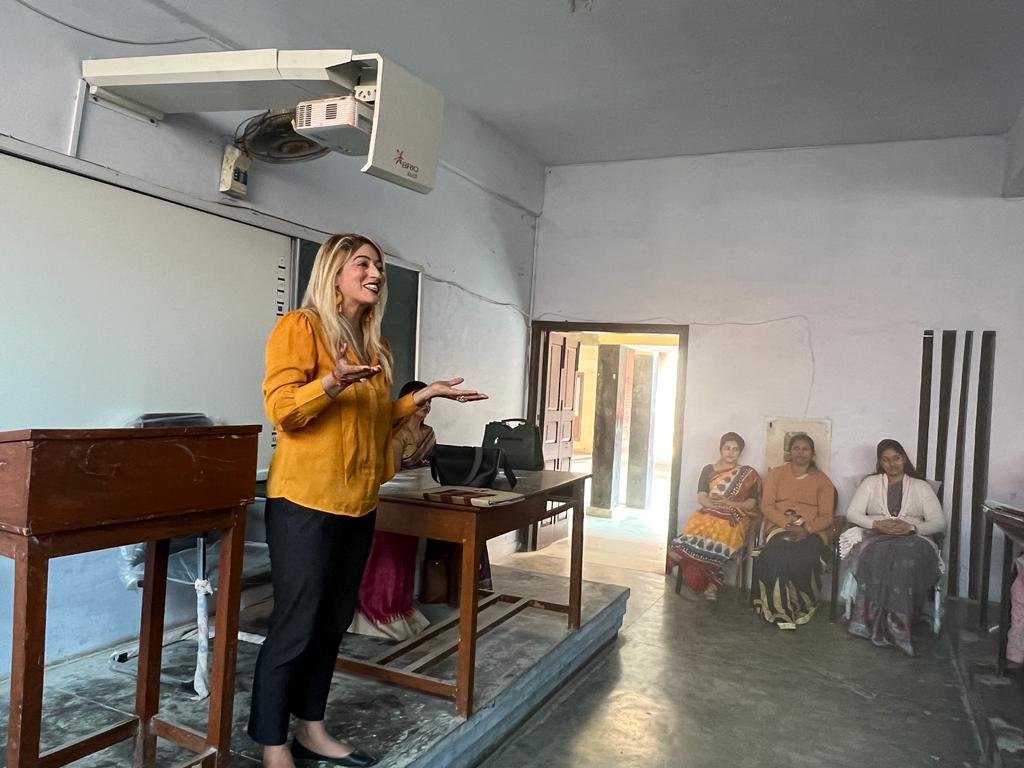
Abhish K. Bose : It is said that cloud seeding is practised in UAE. What are the methods through which you are generating rainfall through cloud seeding?
Vibha Bharadwaj: Cloud seeding, also known as cloud augmentation or cloud modification, is a weather modification technique used to enhance precipitation by introducing various substances into clouds. Cloud seeding is a complex and debated practice, and its effectiveness can vary depending on factors such as cloud type, weather conditions, and the seeding method used. As of my last knowledge, cloud seeding has been practised in the UAE as part of efforts to enhance rainfall and mitigate water scarcity. However, it’s important to note that cloud seeding’s effectiveness and outcomes are still subjects of ongoing research and debate. General methods used for Cloud seeding typically involve the following: Aerosol Seeding: Aerosols, such as silver iodide or potassium iodide, are dispersed into clouds. These particles act as nuclei around which water vapour can condense, potentially increasing the formation of cloud droplets and promoting precipitation. Aircraft or ground-based generators can be used to release these aerosols into clouds. Hygroscopic Seeding: Hygroscopic materials are substances that absorb moisture from the air. In cloud seeding, hygroscopic flares or particles can be released into clouds. These particles draw moisture, which can lead to cloud droplet growth and potentially encourage rainfall.
Abhish K. Bose: What are the treatment methods you have adopted for wastewater treatment in UAE?
Vibha Bharadwaj: As of my last knowledge update, the United Arab Emirates (UAE) has implemented various wastewater treatment methods to address water pollution and manage the increasing volume of Wastewater generated due to urbanization and economic growth. These treatment methods aim to remove pollutants from wastewater and ensure that the treated water meets environmental standards before being discharged or reused. Some of the wastewater treatment methods adopted in the UAE include:
1. Activated Sludge Process: This is a biological treatment method where microorganisms are used to break down organic matter in wastewater. The process involves mixing wastewater with a mixture of microorganisms (activated sludge) in aeration tanks. As the microorganisms consume organic matter, they form flocs that settle as sludge, while treated water is separated and clarified.
2. Membrane Bioreactors (MBRs): MBRs combine biological treatment (similar to the activated sludge process) with membrane filtration. The membranes block suspended solids and microorganisms, producing high-quality treated water. MBRs are effective in producing water that meets stringent quality standards and can be used for various purposes, including irrigation and industrial processes.
3. Moving Bed Biofilm Reactors (MBBRs): MBBRs use a combination of suspended and attached growth microorganisms to treat wastewater. Plastic media are added to the treatment tanks, providing surfaces for the microorganisms to attach and form a biofilm. The biofilm breaks down organic matter and nutrients in the wastewater.
4. Advanced Oxidation Processes (AOPs): AOPs involve using chemical reactions to break down pollutants that are resistant to biological treatment. This can include processes like ozonation and ultraviolet (UV) irradiation. AOPs are effective in removing contaminants like pharmaceuticals, endocrine-disrupting compounds, and micropollutants.
5. Tertiary Treatment: Tertiary treatment involves additional processes beyond primary and secondary treatment to further polish the treated water. This can include advanced filtration methods, such as sand filtration or granular activated carbon (GAC) filtration, to remove fine suspended solids and residual organic compounds.
6. Desalination and Reuse: In arid regions like the UAE, treated wastewater is often treated further through desalination processes to produce high-quality reclaimed water. This reclaimed water can then be used for non-potable purposes such as landscape irrigation, industrial processes, and even some indirect potable uses after extensive treatment.
7. Septage Treatment: In addition to domestic wastewater treatment, the UAE also focuses on sewage management. Septage treatment facilities are used to properly manage and treat septic tank waste before it is discharged into the environment.
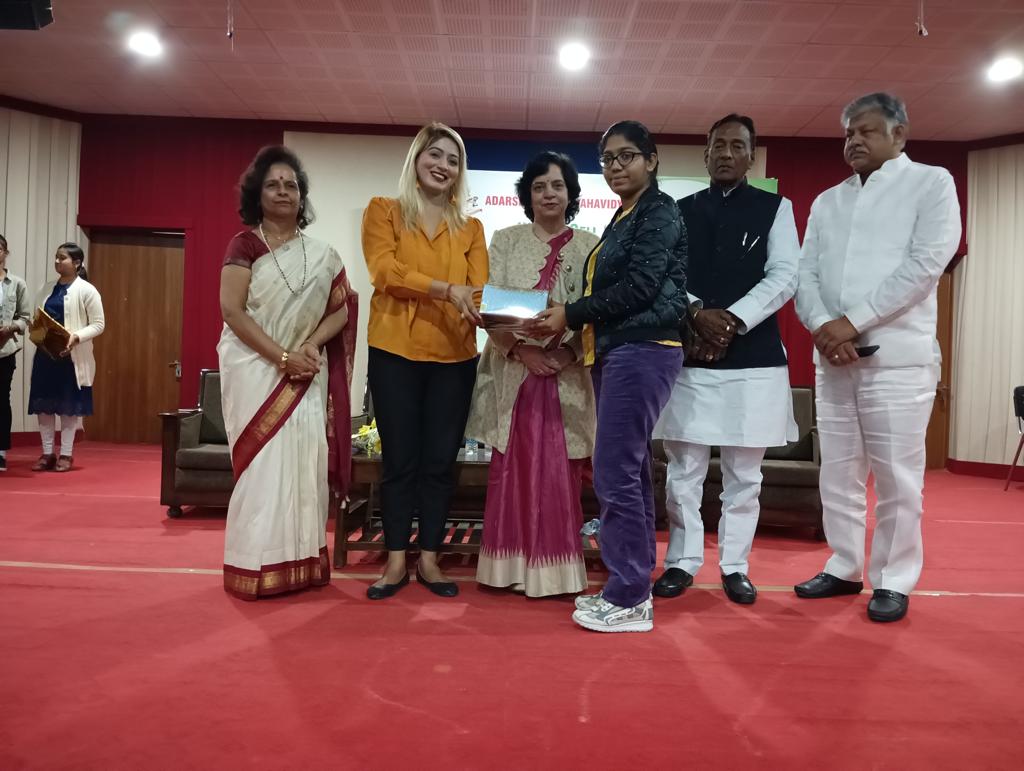
Abhish K. Bose : Is it possible to implement the desalination process adopted in UAE as a solution for the water scarcity regions of India?
Vibha Bharadwaj: Implementing the desalination process adopted in the UAE as a solution for water scarcity regions in India is technically possible, but there are several factors to consider before such a solution can be effectively applied. Here are some important points to consider:Cost: Desalination can be expensive due to the energy required for the process. The cost of producing freshwater through desalination might be higher than other water sources in some regions. India has a diverse range of water scarcity situations, and the cost-effectiveness of desalination would need to be evaluated on a case-by-case basis. Energy Availability: The availability and cost of energy play a significant role in the feasibility of desalination. India’s energy mix and pricing can vary widely across regions,
influencing the economic viability of large-scale desalination plants. Environmental Impact: Desalination processes can have environmental implications, including the disposal of concentrated brine back into the sea and energy-related carbon emissions. Assessing the environmental impact and implementing measures to mitigate it is crucial. Infrastructure and Location: The proximity to seawater sources and suitable sites for desalination plants is important. Transporting seawater to inland areas can be logistically challenging and expensive. Local Water Resources: India has other potential water sources, such as rainwater harvesting, groundwater recharge, and efficient water management practices. Exploring and optimizing these sources should be a priority before considering desalination.
Abhish K. Bose: How is the desalination process happening at the time of water scarcity at UAE? What will be the cost for the desalination?
Vibha Bharadwaj: As of my last knowledge update, the United Arab Emirates (UAE) heavily relies on desalination to address water scarcity due to its arid climate and limited freshwater resources. Desalination is the process of removing salt and other impurities from seawater or brackish water to produce fresh water suitable for various uses, including drinking, irrigation, and industrial purposes. The UAE has been at the forefront of using desalination to secure its water supply. The cost of desalination can vary based on several factors: Energy Costs: Desalination is energy-intensive, and the cost of energy used for the process is a significant component of the overall cost. Energy prices, the efficiency of desalination technologies, and the energy source (e.g., fossil fuels, renewable energy) can influence costs. Technology Used: Different desalination technologies have varying capital and operational costs. RO, for example, has become more cost-effective over time due to technological advancements. Scale of Operation: The size and capacity of the desalination plant influence costs. Larger plants might benefit from economies of scale, potentially reducing costs per unit of produced water. Location: Geographic factors can impact costs. Proximity to seawater, energy sources, and infrastructure can affect both capital and operational expenses. Maintenance and Operations: Regular maintenance, staffing, and operational costs contribute to the overall expense of running a desalination plant.Environmental Considerations: Implementation of environmental measures, such as waste disposal and carbon emissions reduction, can influence costs. It’s important to note that the cost of desalination can vary widely depending on the specific circumstances of each project and the region.
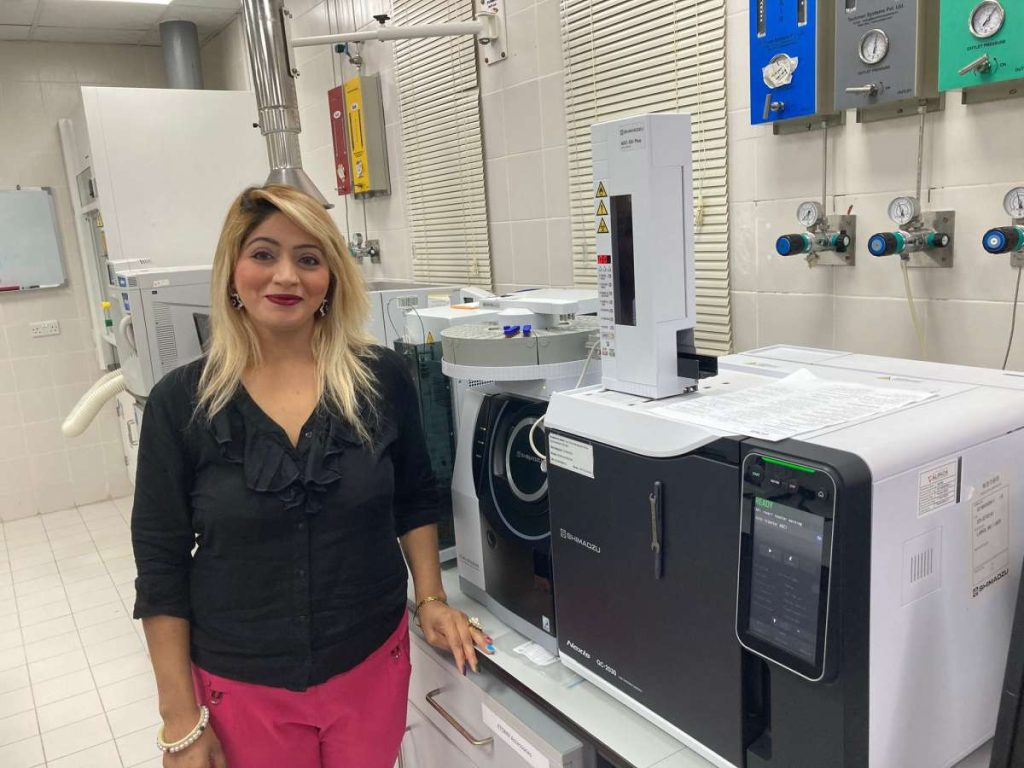
Abhish K. Bose : Could you tell us about your journey and how you became the Director of Environment Laboratories at Ras Al Khaimah Municipality? What motivated you to pursue a career in this field?
Vibha Bharadwaj: It’s a long story and very difficult to summarise. I was born in Bhiwani, Haryana. My father Mr. Ved Pujari is a renowned Businessman. My Mother was a Housewife. I have four siblings. I spent my childhood in a joint family in India. I passed my schooling at Vaish Model Senior Secondary School in Bhiwani, India. I started my career in 2000 after I finished my schooling with both Medical and Nonmedical (combined) until the 12th class (senior secondary). During that time, I cracked PMT (premedical test for MBBS), BDS (for dentist) and CEET (Engineering). My passion is to do something unique for society, nature, and humanity. So, I decided to start my career as a Medical Microbiologist and took the entrance exam at the Indian level. During that time, there was very little awareness about microbiology. But still, I decided to choose microbiology as my career. During that time, my parents supported me and stood beside me to make decisions. I got First rank in the India-level entrance exam then I got admission to SBS PGI Balawala Dehradun, India. I finished my graduation in medical microbiology in 2004 then I did an internship at Indraprasthaapollo Hospital, New Delhi, until June 2005. After that, I joined Adarsh Medical College of Physiotherapy and Laboratory, Haryana, India as a Lecturer and served there. After that, I joined, Sri Balaji Action Medical Institute, New Delhi, India as Microbiologist until 2006. Meanwhile, I was taking the entrance exam for a Master’s in microbiology and finally, I got admission to Kurukshetra University, India. I got a post-graduation scholarship from Kurukshetra University. I finished my master’s in 2008. After that, I joined Sri Balaji Action Medical Institute, New Delhi, India as a Microbiologist until January 2009. Later, I received an appointment letter from Dyal Singh College Karnal, India as a Lecturer in Biotechnology at the postgraduation level. I was giving tuition in the home for masters and graduation students of Life sciences. Later, I was selected as a Scientist in the Forensic Science Laboratory in India in the DNA Fingerprinting Department. I was dealing with criminal cases and giving results reports related to DNA fingerprinting. I served there until October 2009.
With 19 years of experience, you’ve certainly accumulated a wealth of knowledge. Could you highlight some of the most significant projects or initiatives you’ve been involved in during your career?
VibhaBharadwaj: It’s a very difficult question. I believe that whatever projects and research I accomplish are very innovative and significant. My passion and concern are more towards the environment and environment-related issues and furthermore, any innovative applied research or work which have a direct beneficial effect on society. There is no waste until you waste pollution control by utilization of waste for Biofuel production: I was working in Argentina on the Utilization of waste from paper and leather industries and the production of biofuel by heterologous expression system. The major concern in this project was to utilize all waste generated from industries and produce value-added products leaving no waste further as residue. This biofuel is to be utilised in Argentina as biofuel to reduce pollution and carbon dioxide impact. Another project was on Increased Biomethane Production from Endoglucanase-Pretreated Feedstock. Exploration of microbial Biodiversity for the production of value-added products: There is an ever-increasing demand to reinstate traditional chemical processes with advanced biotechnological processes involving microorganisms or enzymes such as pectinases, xylanases, cellulases, laccases, lipases, and proteases etc. I did many research projects on an exploration of Microbial biodiversity to produce different enzymes like Pectinase, cellulase, protease, and phytase and to utilize these enzymes in various industries for the production of value-added products.
Abhish K. Bose : Your publications cover a wide range of topics, from microbial ecology to climate change. Could you discuss one or two of your most impactful research findings or contributions to these areas?
VibhaBharadwaj: Phytomedicine and Nutraceutical- Globally, infectious disease is the major cause of death, accounting for approximately one-half of all deaths, in tropical countries. New therapeutic agents and strategies are demanding issues to cope with infectious diseases. With the increasing acceptance of traditional medicine as an alternative form of health care, the screening of medicinal plants for active compounds has become very important. Therefore, to meet the increasing demand of antimicrobial agent, I explored natural sources and alternative strategies to search of new antimicrobial agents e.g. Deodar Cedar (CedrusDeodara): Efficacy for Potential of Secondary Metabolites and Antibacterial Activity. Unprecedented Antimicrobial properties of Prosopis cineraria leaves. Avicennia Marina: A Novel Convivial Phyto Medicine for Antibiotic Resistant Pathogenic Bacteria. Nannochloropsis algae protein as Potential Fish Feed, Marine Sponges (Scypha): Potential Source for Secondary Metabolites. PODS OF Prosopis cineraria (GHAF): A gift of nature for nutraceutical, Antimicrobial Properties of Prosopis cineraria stem bark, Comparison of Nutritional properties of Prosopis cineraria (Ghaf) with other food products, Prosopis cineraria (Ghaf): An Unconventional Desert protein-rich supplement. Prosopis cineraria (Ghaf): A potential desert nutraceutical. Pollution control by utilization of waste for Biofuel production: I was working in Argentina on the Utilization of waste from paper and leather industries and the production of biofuel by heterologous expression system. The major concern in this project was to utilize all waste generated from industries and produce value-added products leaving no waste further as residue. This biofuel is to be utilised in Argentina as biofuel to reduce pollution and carbon dioxide impact. Another project was on Increased Biomethane Production from Endoglucanase-Pretreated Feedstock. Exploration of microbial Biodiversity for the production of value-added products: There is an ever-increasing demand to reinstate traditional chemical processes with advanced biotechnological processes involving microorganisms or enzymes such as pectinases, xylanases, cellulases, laccases, lipases, and proteases etc. I did many research projects on an exploration of Microbial biodiversity to produce different enzymes like Pectinase, cellulase, protease, and phytase and to utilize these enzymes in various industries for the production of value-added products. During my research, I produced and applied the pectinase enzyme in fruit juice extraction and textile industries.
Short takes
My favourite book– I like science fiction.
Food– Indian and Italian
Gadget – Music player
Social media – LinkedIn
Holiday destination – Switzerland
Role model – My mother





